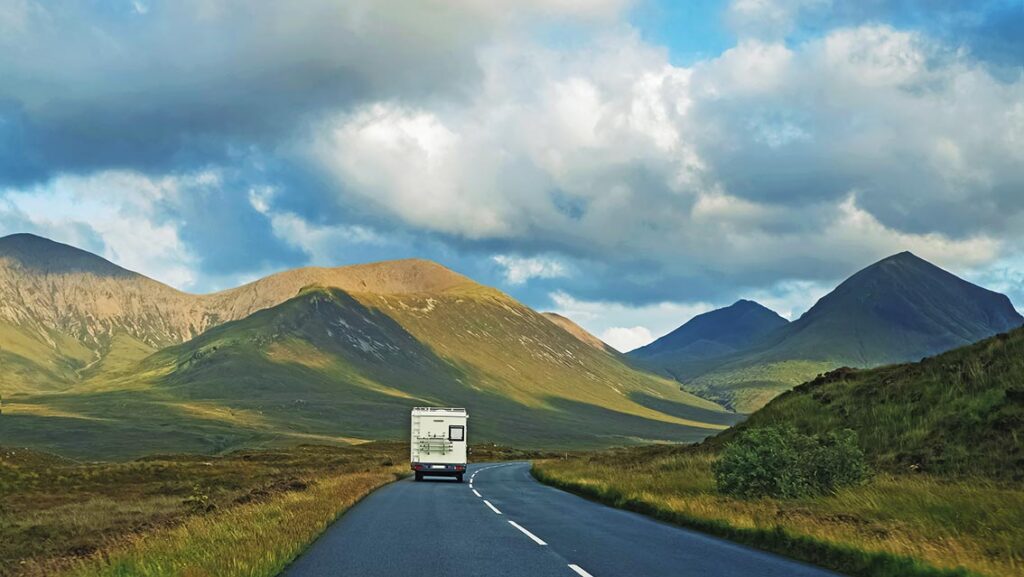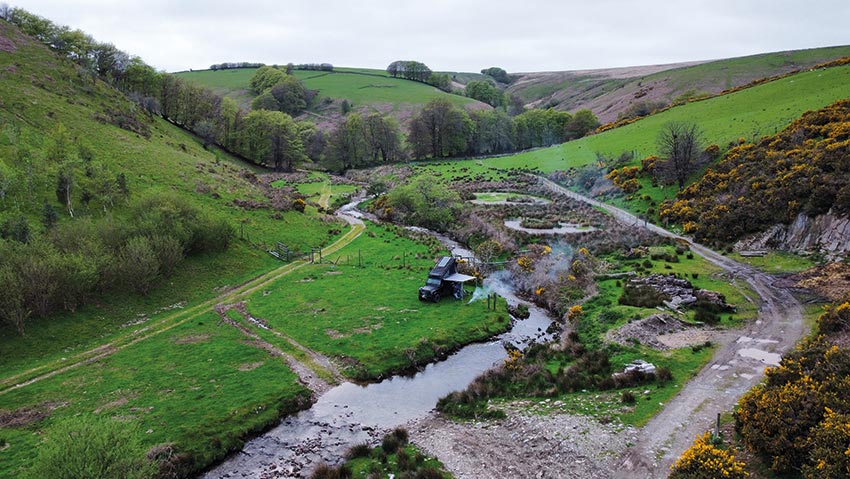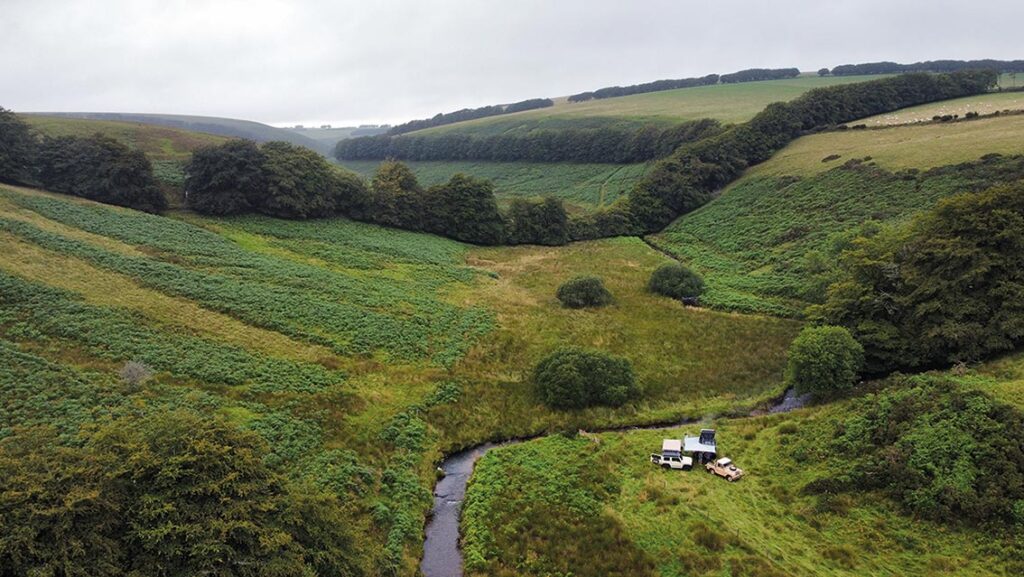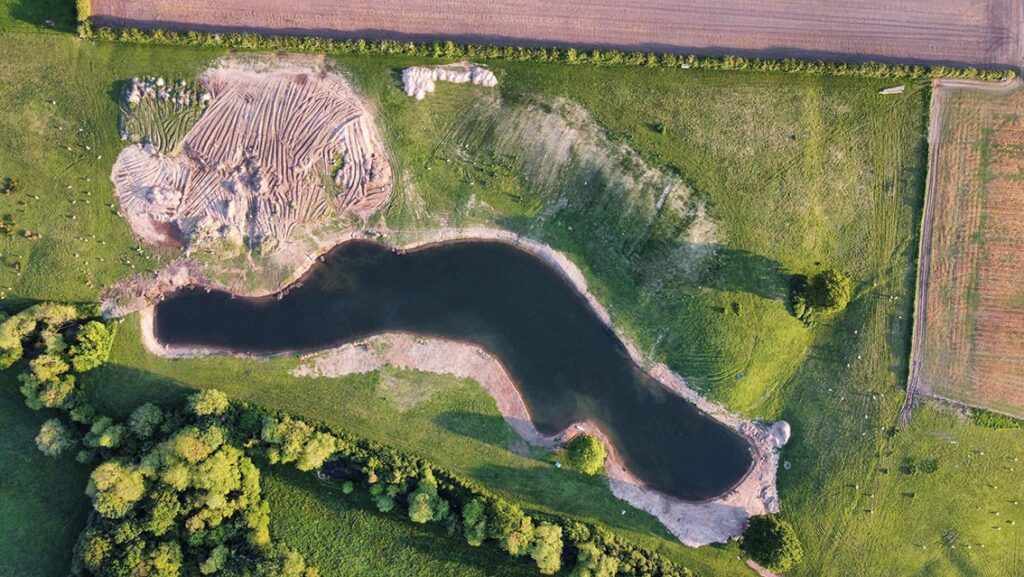Innovative camping brings in cash for low or no input
 © Adobe Stock
© Adobe Stock The staycation market has boomed in recent years, with rural holidays getting a boost as Covid restrictions meant travel abroad was still banned or shunned by many.
The boom prompted an expansion in accommodation, both fixed- and camping-based, which has increased competition.
Those running farm-based accommodation have also seen costs increase considerably, alongside a rise in late bookings.
See also: Late bookings and high expectations in farm holiday market
At the same time, interest in alternatives to large campsites has also grown. Two very different businesses offering overnight stays have both promoted this and benefited from it. The number of their rural hosts is growing steadily.
Both offer a way to earn a moderate additional income, in most cases with no outlay.
Brit Stops offers those with motorhomes the chance to stay free for a night in more than 1,200 places, ranging from farms and vineyards to pubs, restaurants and attractions.
The number of farms signed up to the scheme has grown recently, says manager Tom Clark, so that pubs now represent about 70-75% of the hosts, compared with 85% a few years ago.

© Off Grid Camp
Brit Stops basics
- Founded 13 years ago and sold last year to US based Harvest Hosts, which operates on the same principles
- Hosts offer a free overnight stay for motorhome users
- Flat grass or hardstanding needed
- No cost to host for listing a site – a profile with brief information is created on the Brit Stops website, including number of pitches, maximum size of vehicle, any amenities, whether advance notice is required and whether pets are allowed
- Users pay £44 a year to be Brit Stop members, giving access to information and the sites
- No facilities are required or expected
- Public liability insurance must be held by the host
- If booking is required, this is done direct with the host.
Benefit for host farms
While the overnight stop is free, usually in an attractive location, the benefit for the host is that many of those using the scheme generally spend at the farm shop, vineyard, restaurant or other attraction.
With many motorhome owners being retired, that spend can be considerable.
Motorhome owners pay £44 a year for membership entitling them to use the free stop-over sites.
“There’s no obligation to spend, but nine out of 10 users do so, and many hosts say that they have had no users who have not spent anything with them,” says Tom.
Many of the host sites offer stops only to members, while some have campsites and designate a separate space away from the main site for Brit Stops members.
Some require advance booking, but many are happy for users to turn up on spec.
“The only requirements of the host are that they have public liability insurance, and a relatively flat site of either grass or hardstanding, and ideally something to sell,” saysTom. “Some provide overnight toilets, but that is not essential.
“It’s a very flexible option for the hosts because they can do as little or as much as they want to. For example, they can do weekends only, or certain seasons only, they can block out any days they do not want to host.”
Anne-Marie Harries runs Paddock Farm Shop at Mathry, in Pembrokeshire, and became a Brit Stops host in January this year.
She usually uses Brit Stops campers to top-up empty pitches on her licensed nine-pitch site. “Brit Stops users are usually very easy to accommodate as they don’t expect any facilities or services, which makes them grateful for any provided,” says Anne-Marie.
“The bookings tend to be same day which is great as you know that you have space, as usually the paying guests book ahead of time.
“But for us, it’s an easy way of increasing turnover in the farm shop, especially in the quieter months.
“For us, Brit Stops has been varied – it has brought in lots of great visitors from the UK and the continent, who love a fresh coffee in the morning and think it’s great to buy local produce, but also a minority that feel buying a pint of milk covers their pitch fee for the night. Luckily, the majority far outweighs this.”
Case study – Northfield Farm Shop, Rutland
Jan McCourt raises and finishes rare-breed cattle and sheep for his Northfield Farm Shop, which opened in 1997.
He also takes supplies from other producers and reckons that between 40-50 Brit Stops vehicles use the site each year.
“I have lost track of just how long we have been a Brit Stops host, but it has become just a normal part of the things that happen here. The term ‘Britstoppers’ has entered our regular vocabulary.”
The location in central England on the border of Rutland and Leicestershire makes it a very useful stop-off point, says Jan.
“I am certain that we should be more scientific in our approach to Brit Stops and, if we were, we would gain far more out of it.
“Very few of our numerous Britstoppers fail to spend some money in our farm shop. We have a Brit Stops button on our checkout so I know that our average sale is around £20 or so, but we often have far more substantial sales.”
Jan estimates that his visitors are split 50:50 between UK and non-UK origin.
“We have never had a negative experience, and have had many fascinating and positive exchanges.
“While we prefer a call in advance, we are perfectly happy for people to simply pitch up. The maximum we have ever had simultaneously is five sets of visitors.
“Is it transformative to our business? No. Could it be more so – almost certainly, yes. Would I recommend it to other farmers, especially to those with some element of retail activity? Most definitely.”
Off Grid Camp
Founded in April 2022, Off Grid Camp is a network of more than 170 locations across the UK offering somewhere wilder to camp.
The venture is run by Tom O’Hare and his wife Rozzi, with most of the sites on farms. Tom works in renewable energy and his family has a hill farm on Exmoor, while Rozzi is an agronomist with Bayer.
Off Grid Camp sites are typically just somewhere secluded, remote or wild to park a 4×4 vehicle whose occupants undertake to leave no trace of their stay.
There is no cost to the landowner host, who deals directly with the campers and charges an average of £20-£30 a vehicle a night.
The organisation now has 2,000 members, paying an annual fee of £25 for access to site information. Each site has a listing giving details of how many vehicles are permitted, whether fires are allowed (if yes, always only on a raised firebed) and whether there are any facilities, though none are expected.

© Off Grid Camp
“The landowner can spell out any requirements,” says Rozzi. “You don’t need to provide anything. Our members are specifically looking for somewhere ‘off-grid’ without any facilities and agree to be fully self-sufficient.
“They are basically looking for everything that a conventional site is not. No lines of tents, toilet blocks, noisy families – they are looking for somewhere simply wilder to camp.
“The further from buildings and roads and the more ‘wild’, the better,” she says. “Woodland blocks, old quarries, open fields, hill side spots and meadows are all suitable. Most of our members are 4×4 overlanders, so enjoy being able to drive along some off-road tracks to get somewhere out of the way.”
Members book and pay landowners directly, having accessed their location and contact details through the directory.
They must pledge to be self-sufficient, to leave no trace, to deal with their own waste either by having a self-contained toilet or burying waste appropriately, to drive responsibly and within their capabilities and to adhere to landowner requests.
Off Grid Camp is looking to build its site numbers in rural and remote locations. Current locations span the UK and include the Cumbrian fells, coastal cliff tops, Scottish estates and isolated islands.
Site ratings
Each location includes a rating for what vehicles are suitable for a specific site:
- Any vehicle
- Off-road capable
- Experienced off-road drivers only.
There is also an off-grid rating, that specifies how isolated an area is:
- Buildings or public road within 500m
- Pretty off-grid
- Totally off-grid, with no sign of civilisation.
Case study – Checkley Hall, Cheshire

Checkley Hall © Off Grid Camp
Vikki and Matt Cornes have 100ha of mainly arable land, and became Off Grid Camp hosts this year, with up to 15 users so far at £25 a night.
“It’s very straightforward,” says Matt. “They leave cash in the box or send the payment online. Often we don’t even see the campers.
“We have a few areas where they can camp, but most want to be by a spring-fed pool which we dug out recently.”
Tap water is supplied, fires and dogs are allowed and there are spaces for up to 10 vehicles.
